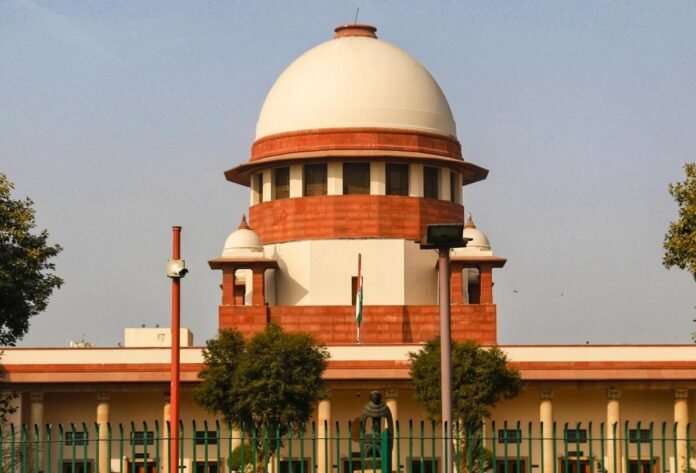Supreme Court acquits Chennai man Dashwanth in 2017 minor rape-murder case, citing unfair trial and false recoveries by police.
In a major judgment that raises questions about investigative accountability, the Supreme Court has acquitted Chennai man Dashwanth in the 2017 rape and murder of a minor girl, highlighting multiple violations of fair trial procedures.
Apex Court Slams Police for False Recoveries and Trial Gaps
The Supreme Court bench comprising Justices Vikram Nath, Sanjay Karol, and Sandeep Mehta made scathing observations regarding the manner in which the investigation and trial were conducted in the case. While acquitting Dashwanth, the bench remarked that he was made a scapegoat by police, and evidence was allegedly “planted” to secure a conviction.
The Court noted that mandatory requirements of a fair trial were violated, and the prosecution relied entirely on circumstantial evidence, much of which was riddled with inconsistencies.
Circumstantial Evidence Found Unreliable
At the heart of the case was a lack of direct evidence linking Dashwanth to the crime. The prosecution’s case leaned heavily on items allegedly recovered from Dashwanth, such as the minor girl’s belongings and objects linked to the crime scene.
However, the bench found that no forensic or eyewitness evidence corroborated the claims of recovery. The chain of custody was broken, and recovery memos were “unreliable”, indicating procedural violations by police officers.
The judgment emphasized that while circumstantial evidence can be the basis for conviction, it must form an unbroken chain pointing to guilt. In Dashwanth’s case, the Court said this standard was not met.
Accused Rights Undermined, Trial Court Criticised
The Supreme Court also took note of how the trial court handled the matter, stating that the lower court failed to question the lack of material evidence and procedural integrity.
The apex bench further criticised the State DGP’s oversight, questioning how the supervisory chain allowed such lapses in a case involving the rape and murder of a minor, a particularly sensitive and serious charge.
Legal experts have pointed out that accused rights under Article 21 of the Constitution, including the right to a fair trial, were clearly jeopardised in this case. The presumption of innocence, a bedrock of Indian criminal jurisprudence, was replaced by a narrative-driven prosecution.
Public Outrage and Media Pressure May Have Influenced Case
Legal analysts and human rights organisations have drawn attention to how media narratives and public sentiment may have influenced the course of the trial.
Alain de Botton, in his work The News: A User’s Manual, warns against the dangers of sensationalised coverage in criminal trials, especially when the crime involves minors. The judgment indirectly echoes this concern, stating that public pressure should not override judicial impartiality.
A Wake-Up Call for Police Guidelines and Judicial Scrutiny
This case is now being viewed as a testament to the need for police reforms. In light of the apex court’s observations, legal think tanks have demanded an inquiry into the investigative practices of Tamil Nadu police, citing misuse of power and disregard for due process.
The case also raises the need to reinforce police guidelines to ensure investigations are based on lawful procedures rather than expedient narrative-building. Misuse of Sections 376 (rape) and 302 (murder) of IPC without corroborative evidence reflects a serious structural issue.
What Happens Next?
While Dashwanth has now been acquitted after years of incarceration, the judgment leaves behind crucial questions:
- Will the officers responsible for false recoveries face contempt or departmental action?
- Will the State DGP respond to the Supreme Court’s implied reprimand?
- How will this impact future cases involving vulnerable victims and accused?
Human rights lawyers have stressed the need for a system of checks on investigative bias, and the Supreme Court’s stand is being seen as a landmark precedent for future acquittals based on lack of fair trial.
For more insights and analysis on major Supreme Court decisions, visit our National News section. Also, catch expert interviews and case break-downs on our YouTube channel.




